At The Scots College, we want to give boys ‘the finest preparation for life’. The essential question we need to ask ourselves is: What will a boy’s future look like? We want to prepare our students for the world as it will be, not the world into which their teachers, parents and carers emerged after they graduated from school. This is the world as it is now, and will be – in this century and the next. I will outline some of the challenges currently facing the education system, due to the changing nature of work. The short video, below, was created by the team behind the award-winning book and documentary, Most Likely to Succeed, and puts into relief some of the significant changes underway that will, inevitably, affect all of us – and especially our boys.
Click here to access the video.
Education has been the domain of a wealthy minority through most of history. However, mass education was first instituted in the early 19th century. New South Wales opened its first public school in 1848, and introduced compulsory primary education in 1880[1]. The industrial revolution was in full swing and employment, for many people, involved repetitive tasks in a large-scale organisation. Educating ‘work-ready’ citizens, in that context, included skills and values such as: compliance with authority, accuracy and efficiency, following instructions, dependability, and knowing your place in the larger collective[2].
Since the nineteenth century, social, technological and workplace dynamics have changed beyond recognition. And, as trite as it is to say, things are accelerating at an unprecedented pace. However, the general ‘operating system’ of schooling has not changed to keep pace. The industrial model of education is no longer fit for purpose.
Recent Australian research analysing four million job advertisements confirms that contemporary organisations are just as interested in social and emotional ‘soft’ skills for their prospective employees[3]. These enterprise skills are said to be transferable between careers, and include: problem solving, communications, financial literacy, critical thinking, creativity, teamwork, digital literacy and presentation skills.
If education in the 21st century needs to incorporate knowledge, skills and character development[4] in order to prepare young people to be successful workers and flourishing citizens, what styles of teaching and learning will best achieve these aims? The dominant model of knowledge transmission by the teacher (as the ‘sage on the stage’) is argued to be less useful for future education than the role of facilitator (as the ‘guide on the side’) or even as strategic disruptor (as the ‘meddler in the middle’)[5].
These pedagogies require some upskilling of teachers who are trained in the traditional model, and even some ‘unlearning’ of established attitudes and habits, but this does not mean that traditional direct instruction is no longer a useful pedagogy. To borrow an analogy from a trades context: teachers need to expand their pedagogical toolbox, rather than replace it with an entirely new one.
I recently visited a boys’ school in Western Sydney that has successfully transitioned its whole approach towards a rigorous project-based and applied learning model across Years 7 to 12 and seen its NAPLAN and HSC results improve such that, it is one of the top-performing non-selective schools in the state.
This transformation reveals an essential shift in educational paradigms where students, and teachers, prepare for an evolving future.
To read more on the Research Office’s findings click here.
Dr Hugh Chilton
Director of Research and Professional Learning
Mr Jeff Mann
Coordinator of Student Experience
References
[1] https://education.nsw.gov.au/about-us/our-people-and-structure/history-of-government-schools/government-schools/public-instruction-act-1880, accessed 17 June 2019.
[2] Wentzel (1991).
[3] Foundation for Young Australians (2017).
[4] Center for Curriculum Redesign (2015).
[5] McWilliam (2008).






